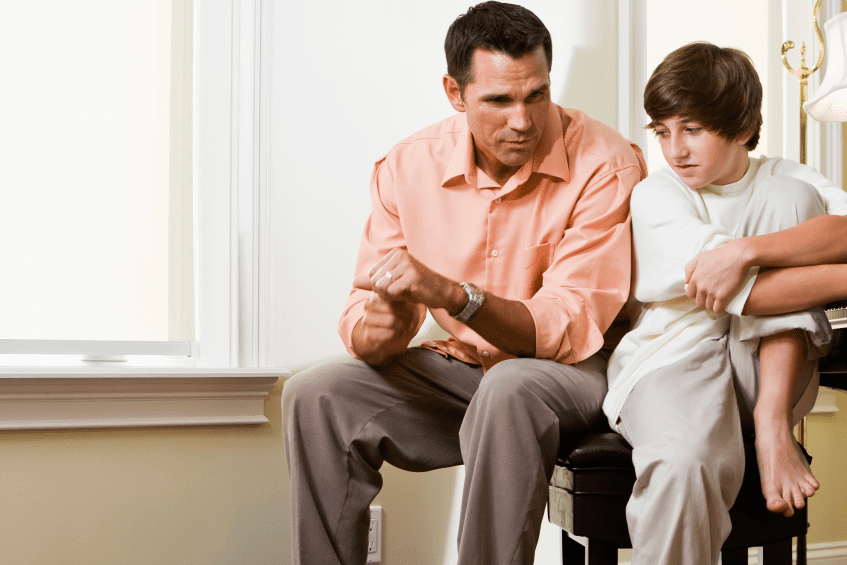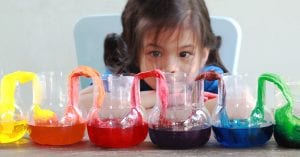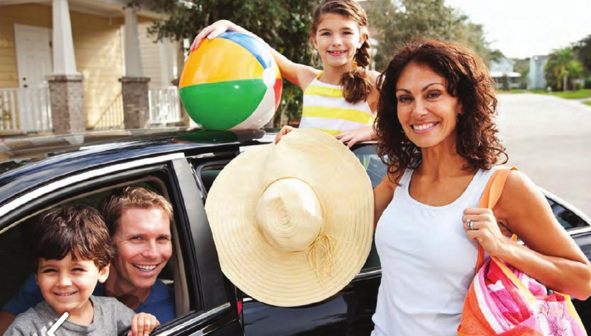
With recent tragedies in the news, many children, including those challenged with special needs, are exposed to trauma through the media and in conversations. The Episcopal Center for Children (eccofdc.org), a nonprofit school serving children with special needs ages 5-14 in the Washington, DC area, offers some advice on how to talk with your child about tragedy.
“Children hear information from other children and from the activities around them. Your child will pick up information very quickly after a traumatic event happens,” said Dodd White, president and CEO of ECC. “It’s important for parents and guardians to set a tone of openness and support with their children, and to re-assure children that they are safe.” Dodd and the staff at ECC offer the following tips and advice:
Use age-appropriate language.
Talk with your child about the tragedy in a way that is appropriate for his or her age. Elementary schoolers may have questions about their own safety and security. Older children may want more information about the cause of the tragedy or want to talk about how it could be prevented.
Share what is appropriate for your child.
Be mindful about the personality of your child. Your child may be a 6-year-old who laughs at monsters in movies and can handle the truth about bad guys being a reality of life. Or your child may be a 10-year-old who cannot handle scary movies, and gets emotional when people are hurt. When answering your child’s questions about tragic news events, let the unique personality of your child be your guide.
Let your child know it is ok to talk to you about the tragedy.
Spend time talking with your child. Let them know that they are welcome to ask questions and express their concerns and feelings. You might not know all the answers and it is OK to say that. At the same time, don’t push them to talk if they don’t want to. Let them know you are available when they are ready.
Be calm.
Your child will look to you for cues about how to react. It’s OK for children to see adults sad or crying, but consider excusing yourself if you are experiencing intense emotions.
Reassure your child about his or her own safety.
Point out factors that ensure your child’s immediate safety and the safety of the community. Review your family’s plans for responding to a crisis. Assure your child that he or she is safe and loved.
Limit media exposure.
Constant exposure to coverage of a tragedy can heighten anxiety. Do not allow young children to repeatedly see or hear news coverage of a tragedy. Even if a young child is engrossed in play, he or she is likely aware of what you are watching on television – and can become confused or upset. Older children might want to learn more about a tragedy by reading or watching TV. However, avoid repetitive loops of news information once you have the facts.
Avoid placing blame.
Be careful not to blame a cultural, racial or ethnic group, or people who have mental illnesses.
Maintain your family routines.
Continue your family’s usual routines for waking up, dinnertime, and bedtime. The familiarity of these routines will help your child.
Promote self-care.
Encourage your child to drink enough water, eat regularly, rest, and exercise. And follow this advice for yourself too!
Spend extra time together.
Spend a little more time reading to your child. Take a few extra moments when tucking him or her in at night. If your child is having trouble sleeping, allow him or her to sleep with a light on or to sleep in your room for a short time. Extra hugs and cuddles are good too. All of these actions can improve your child’s sense of security.
Watch for signs of stress and anxiety in your child.
Look for hyperactivity, irritability, regression, stomach aches/headaches, and separation anxiety. Take steps to relieve stress and anxiety.
Get physical.
Exercise can relieve stress and help you and your child get a better perspective.
Read Next | Finding My Way Back to Fine
Pay close attention to your child if he or she has emotional problems, learning challenges, is going through major changes at home, or has experienced trauma in the past.
Children can merge a new trauma and it can heighten their anxieties. Watch your child closely for any changes in mood or behavior.
Do not dismiss or minimize your child’s feelings.
Rather than saying your child’s fears are silly or that such things will never happen, help your child put things in perspective by pointing out how rare and unlikely such things are. Address each concern. Point out that many children and parents out there have the same worries and we can instead focus on the definite “will happens,” such as fun things to do at home, school, and with friends and family.
Encourage the expression of feelings.
Explain that it’s OK to be upset. Let your child write about or draw what he or she is feeling. Physical activity might serve as an outlet for feelings or frustration. If your child is acting out, explain that there are other ways of coping.
Do something for those affected by the tragedy.
Focusing on what can be done to help others can help children feel less anxious and more secure. Consider ways that you and your child can help victims and their families. You might take your child to your place of worship, light a memorial candle, or write thank-you notes to first responders.
Get help if needed.
If your child is still exhibiting signs of anxiety after a week or two, seek out a school counselor, therapist, clergy or spiritual leader, or mental health professional.
Tips adapted from the Mayo Clinic, SpecialNeeds.com, and the National Child Traumatic Stress Network.

Read Next | Health and Wellness Resources for Your Staten Island Child




